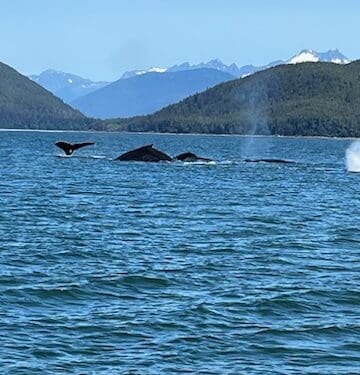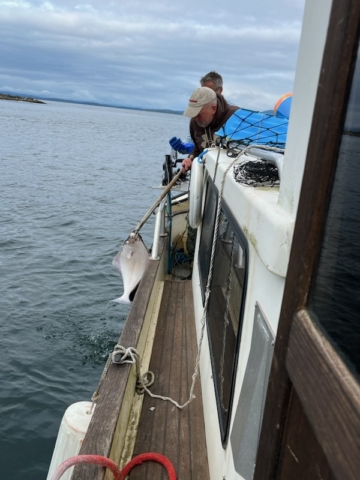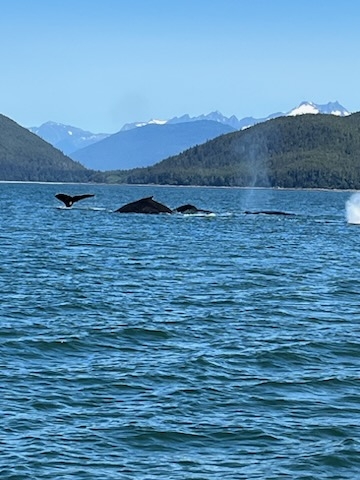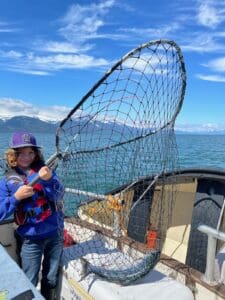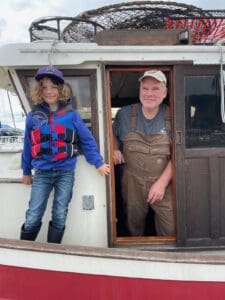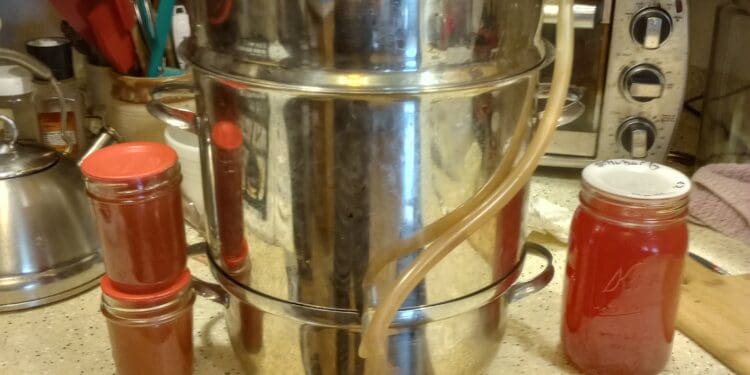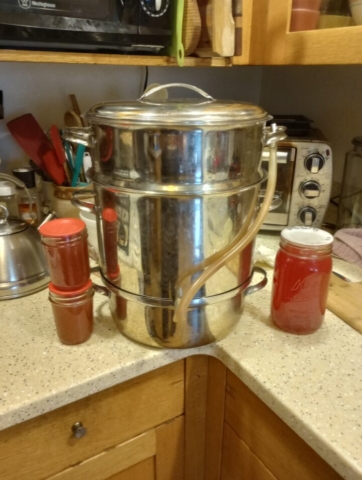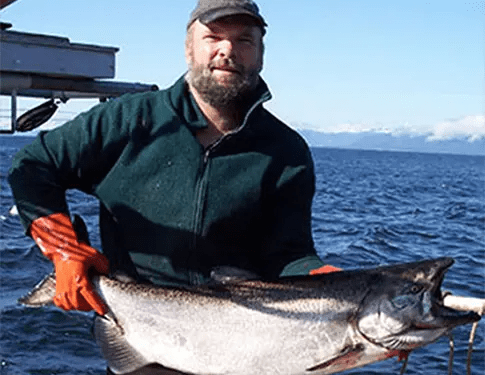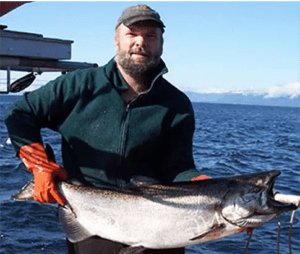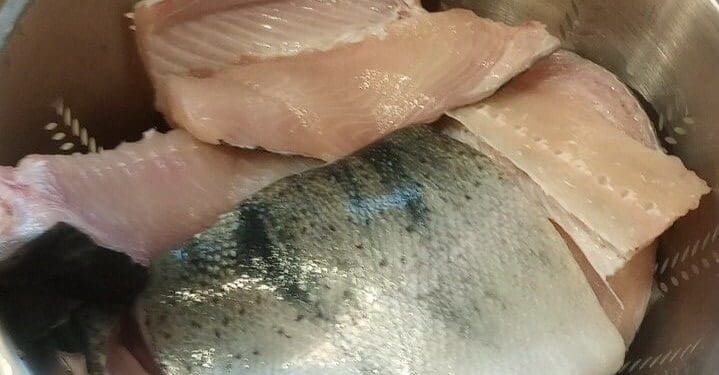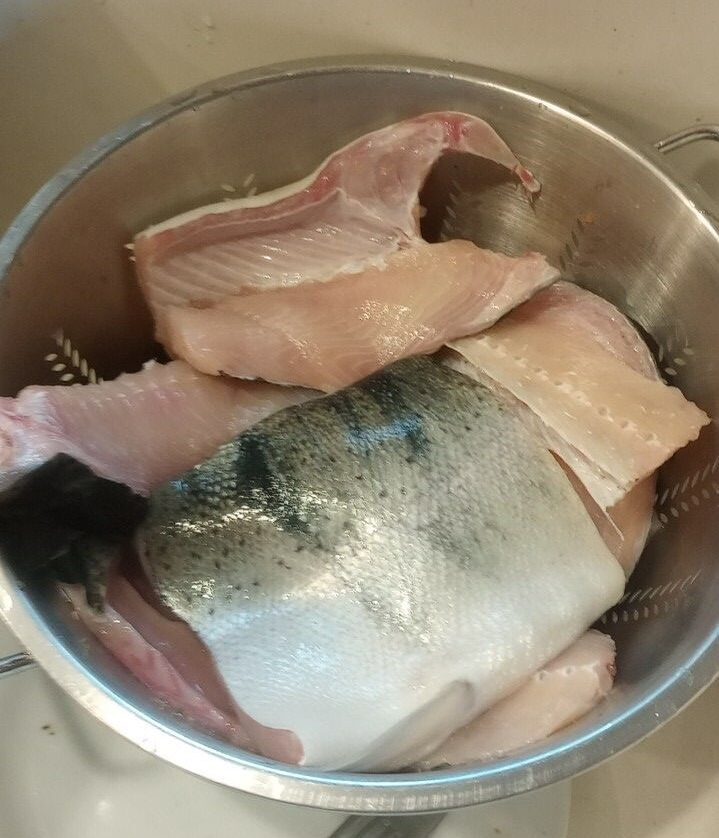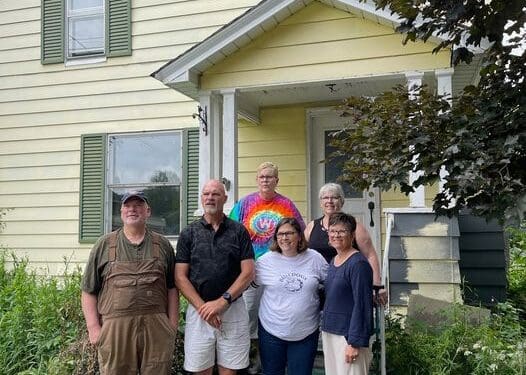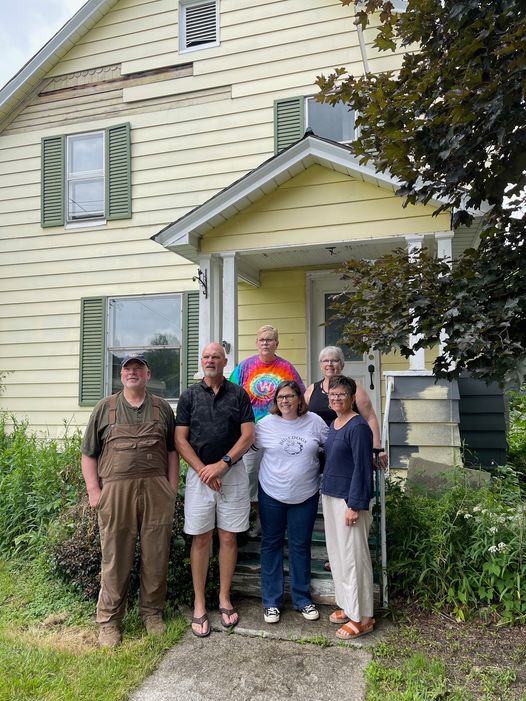Todd and Renee came to town for a week, including 3 days out on the boat. We headed to Chatham Strait on day 1, and on the way, came across a group of about 14 humpback whales bubble net feeding. The whales were some distance away as we motored on our way, not headed in any particular direction when they dove. They surfaced literally a stone’s throw away from us. I put the boat hard over to starbard to move away from them, then immediately took the boat out of gear. This was an instinctual reaction from my years of work as a whale watch guide. The whales stayed at the surface, then swam right behind the stern of the boat, taking their time. It took awhile before they were 100 yards away and I could put the boat back in gear so we could be on our way. These encounters never get old, and it’s more exciting with friends who’ve never witnessed this event before.
We put down the fishing gear once we rounded Point Retreat, and soon had a fish on. We caught fish the rest of the afternoon. Most were pinks on a yellow with red stripe hootchie. I had them switch to a chartreuse hootchie and we got a couple cohos, so I switched the other side to chartreuse, too.
About 4 pm, we headed to a very remote state parks cabin, which is my favorite. It has two bays separated by a sand bar, and the cabin is just off the sand bar. Todd told me a funny story about “Minnesota Nice” on the way over. His step daughter was about 12 at the time, and they were at a cook out. There was one hamburger left, and as the guest, they asked Todd if he wanted it. He said sure, he’d take it if no one else wanted it, eager to please the cook and his offer. When he got his burger and returned to the table, his step daughter was beside herself. “You don’t say yes if someone asks you for the last hamburger. You say no first, and then let them negotiate with you and ask you four or five more times before you accept.” That killed me.
After anchoring the boat, I filleted fish and Todd wrapped them, then they went in the freezer. Then we launched the punt to go to shore. After never failing me, the kicker would not start. It wouldn’t even fire. So I rowed Renee and Todd in one at a time with the gear. When I got there, I later realized I’d not brought the spatula for making pancakes in the morning.
I fried the frames from coho salmon we’d filleted, and also fillet pieces of coho and pink salmon. Sara had packed a tomato and basil salad and some shrimp seviche to go with it, along with some potato chips I brought along. I realized that, along with the spatula, I’d forgot any spices for the salmon. This is the stuff Sara does not forget. I improvised and used crushed potato chips, which turned out fantastic. When we finished eating frames, I asked if I should cook the fillets, and Todd said I should. Those two ate those themselves, and I was happy to hear Renee say how much she liked the pink salmon and that it tasted mild like trout. So many here turn their nose up at pink salmon, but I know better. Pink salmon, taken out on the ocean and then bled and chilled like you’d take care of a king salmon, are fantastic table fare. And getting an unbiased affirmation like that made me smile. We had chocolate for dessert. We slept on camping pads in the cabin. I’d brought those to save space on the boat. Not the best, but okay for the night. Next time it will only be full size foam pads, and I’ll figure out a way to keep them on the boat roof and dry.
We got up at a leisurely time after a stiff night of sleep. Lots of coffee before I got to making pancakes. Then Todd asked if the boat had dragged anchor, and I realize it had. We’d set a crab pot behind it, and the boat was now even with the buoy. I jumped in the punt and rowed out, and reanchored the boat with a lot more scope this time. And I grabbed the spatula.
We ate pancakes cooked in olive oil and some venison summer sausage til it was all gone. Then packed up for another day of fishing.
We headed back to the Admiralty shore, and put the gear out at Naked Island about 11 am. It didn’t seem that 15 minutes ever went by when we didn’t have a fish on. By 330 pm, we’d reached our limit of pinks and had a couple decent cohos, too. The kids called uncle. This is enough fish and we don’t need anymore to take home. I’d hoped the chartreuse hootchie would catch more cohos than pinks, but it did not. We headed to the Funter Bay dock to tie up for the day.
On the way, I decided to set a 2 hook halibut skate. It was my first time doing so. I set out a little anchor, then snapped on a ganion line with circle hook and octopus bait, then another hook and bait, then another anchor, and then fed out line til the anchors were both on bottom, and put on a buoy. Next we set a crab pot filled with salmon heads and bones amongst many other pots, and tied up to the dock.
I started filleting our catch, Todd portioned and rinsed it twice, put the fish into colanders to drain, then Renee wrapped the pieces in plastic wrap and we put them in the freezer, separating them with chunks of beach combed plastic trays so they froze properly.
Next I got dinner on, and Renee vac packed yesterday’s fish. Tonight dinner was moose brauts Jerry’s meats made from the moose I caught on the Yukon River in April, with lots of garnish choices, including onions and bell peppers I sauteed. I put those and some pickled rhubarb on mine, and some mustard. I have not found anything I don’t like pickled rhubarb on, and will need to can a bunch more to have enough for the year. The couple enjoyed the moose.
We retired early and we all were asleep quickly after a full day.
I got up first in the morning and got the coffee on. This was the first of 4 pots we’d drink today. Next, I started vac packing yesterday’s catch, and Todd soon joined me. We drank cup after cup of coffee. When the fish was done, we headed to check our gear. The dungy pot was full of juvenile king crab, which was great as Renee had never seen them. She took lots of photos for her 4th graders to see in the fall. We released all the crab, shook the bait from the bait jars, and headed for the halibut skate. There was nothing on the first hook, and the octopus was gone. Next came the anchor, with a big loop in the line. The second hook should have been next. Why the tangle? Because there was a halibut on the second hook! I got the fish to the side, conked it, and gaffed it on board. Exciting to get my first halibut on a skate.
We headed back to town. The whales were in the same location as the way out. We watched the big group dive and surface several times, but they never “set” as they call it, coming up with their mouth’s wide open under the bubble net.
We got back to the harbor, and I got a good spot near the ramp. We offloaded the gear, carted it to the truck, and headed for the house.
Sara greeted us in a mask, with masks for us. She got Covid and so was keeping her distance. She had to cancel her coveted trip to Antiques Roadshow in Anchorage, as well as a ride on the train in Fairbanks to celebrate the centennial of the Alaska railroad. Pretty disappointing. None of us had any symptoms and I tested negative so far. Fingers crossed.

